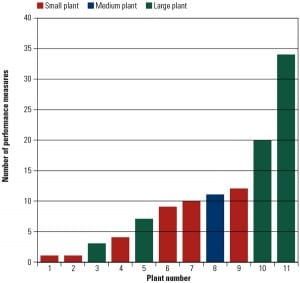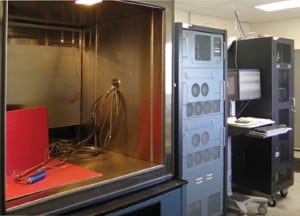Business
-
Supply Chains
TREND: Markets and Critical Materials
While China seems determined to exploit its current control over the market for rare earths and other minerals critical to high-tech and green energy technologies, and while governments engage in conventional hand-wringing and head-scratching, markets appear to be reacting in the ways that markets are supposed to react.
-
Legal & Regulatory
The Energy Efficiency Conundrum
For many energy analysts and policy makers, efficiency is the Holy Grail, the universal solvent, the way to effortlessly reconcile supply and demand while simultaneously serving the needs of the environment. Don’t build new power plants, says policy guru Amory Lovins; gather "negawatts" instead. President Obama says that Americans "can save as much as 30% of our current energy usage without changing our quality of life."
-
Business
POWER Digest (May 2011)
ABB, BHEL to Deliver $1.1B Multi-Terminal UHVDC Line in India. Zurich-based ABB and Indian state-owned company Bharat Heavy Electricals Ltd. (BHEL) said on March 23 that they had been selected by Power Grid Corp. of India Ltd. (PGCIL) to deliver an ultrahigh-voltage direct current (UHVDC) transmission system to convey hydropower from northeastern India to the […]
-
Legal & Regulatory
Supreme Court Expands Employee Rights
U.S. Supreme Court rulings in two recent cases further advance the rights of employees in disputes with employers, continuing a long-term trend in federal law on employment discrimination.
-
Business
HAZCOM Is Essential for Avoiding Explosive Situations
In 1983, OSHA published its Hazard Communication (HAZCOM) Standard, which requires that the hazards of all chemicals used in the workplace be communicated to employees so that responsible protective measures can be taken. Today, HAZCOM remains near the top of the list of most frequently violated OSHA standards that result in a citation. The 1917 Halifax Explosion, one of the world’s largest nonnuclear explosions, testifies to what can happen when you don’t have—or don’t follow—an effective HAZCOM program.
-
Legal & Regulatory
Japan, Critical Materials, and Weak Links in Supply Chains
The devastation in Japan has focused new attention on supply chain issues and the impact of the partial collapse of that country’s manufacturing infrastructure on both Japanese imports and exports.
-
Coal
Benchmarking Fossil Plant Performance Measures, Part III: Metrics Used for Compensation
In Part III of this three-part report, we look at plant- and fleet-level metrics used to determine compensation. As expected from this EUCG-sponsored benchmarking survey, there is broad use of quantifiable metrics to set portions of compensation, but the metrics selected vary substantially across the surveyed utilities. More surprising was the number of utilities that used no performance metrics as part of their employee compensation packages.
-
Legal & Regulatory
John Hanger, Pa.’s Former Environmental Chief, Talks About Challenges of Keeping Gas Drilling Safe
John Hanger, who led Pennsylvania’s Department of Environmental Protection until January, talked with ProPublica earlier this year about the challenges of trying to regulate the expanding drilling industry.
-
HR
Writing an Employee Handbook Your Employees Will Read, and Heed, Part 1
Not complying with current law can be expensive in today’s legal climate. Employers should review their employee handbooks and employment-related policies to make sure they are up to date. More importantly, employers should draft their handbooks so that employees actually read them and follow their policies.
-
Business
KEMA Opens Lab to Test Energy Storage Performance
Dutch energy consulting firm KEMA in February opened a new laboratory in Chalfont, Pa., to test and verify emerging utility-scale energy storage systems.


